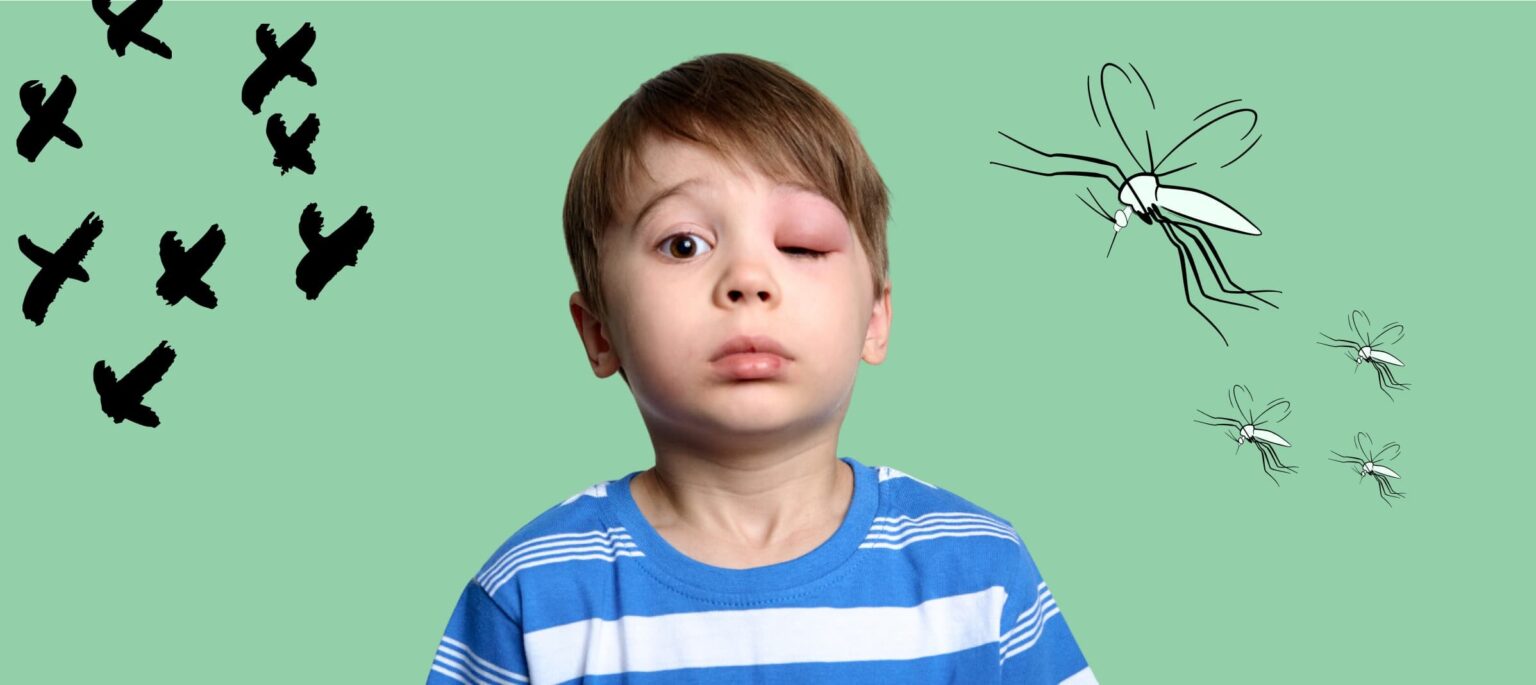When You Get a Bug Bite on Your Eyelid
Ah, summer. The season most people love because of the long days, sunshine, trips to the pool, and warm nights. But with warm weather comes all of the bugs from their winter hiding places, and the risk of getting a mosquito bite on your eyelid.
One of the most pervasive insects is the seemingly frail mosquito. For most people, a mosquito bite on the eyelid or other part of the body is irritating at best for a few days. But these little flies (the literal Spanish translation) kill over 1 million people yearly due to the diseases they carry, making them the world’s deadliest insect.¹
Luckily, mosquito-borne illnesses are relatively low in the United States, as only 12 of the over 200 species of mosquitoes spread germs that make people sick.¹
For awareness of how bug bites affect the eyes, this article explains what happens if you get a mosquito bite on your eyelid, how to know it’s not something else, and what to do to get relief from the irritation.
Key Points
- Getting a mosquito bite on your eyelid is typically not a very serious eye injury.
- Some groups, like young children and people with compromised immune systems, may experience more intense symptoms.
- You can usually treat these types of bug bites on your eyelid quickly and easily at home.
What Happens When a Mosquito Bites You
Maybe you’ve been bitten hundreds of times by mosquitoes but aren’t really sure why they cause the reaction they do in your body.
Mosquitoes are blood-sucking flies. They use the pointy part of their mouth, called a proboscis, to suck blood from their victim.² When they bite and begin sucking blood, they inject some of their saliva into the skin. The saliva is what causes your body to react with an immune response that causes swelling and itching.²
How to Know If You Have a Mosquito Bite On Your Eyelid
Most of us know what it feels like when a mosquito leaves its mark. But, when it comes to your eyes, you may not expect the bite to occur in that area and associate it with other eye conditions.
If you’re concerned at all about unusual symptoms on your eyelids or the surrounding area, always consult with your eye doctor. They will rule out other eye conditions and determine if a bug bite is really the culprit.
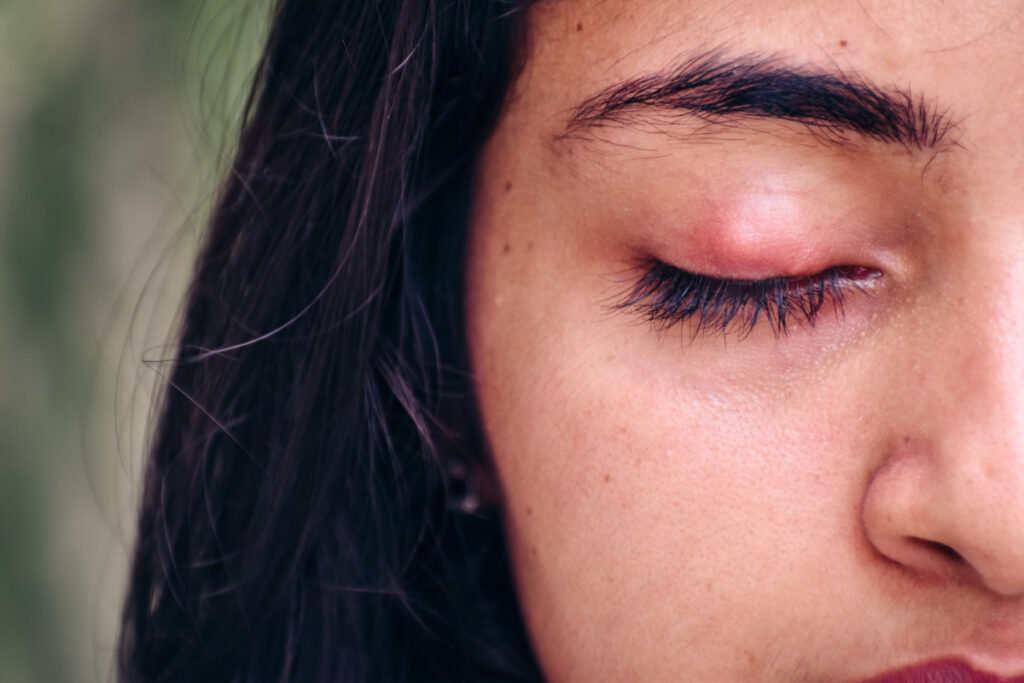
Signs and Symptoms of Mosquito Bite on the Eyelid
With a mosquito bite, you’ll start to experience symptoms within minutes to a few hours after being bitten.
When it comes to your eyelids, the skin is a bit more delicate, so you may experience more widespread eye swelling than you would on other parts of your body:²
- Small to medium-sized red bump within minutes after the bite
- Swollen eyelid
- Itching ranging from mild to intense
- Hard, red, or brownish bump a day or so after the bite
- Eventually, the bite spot may look like a blister with minimal itching
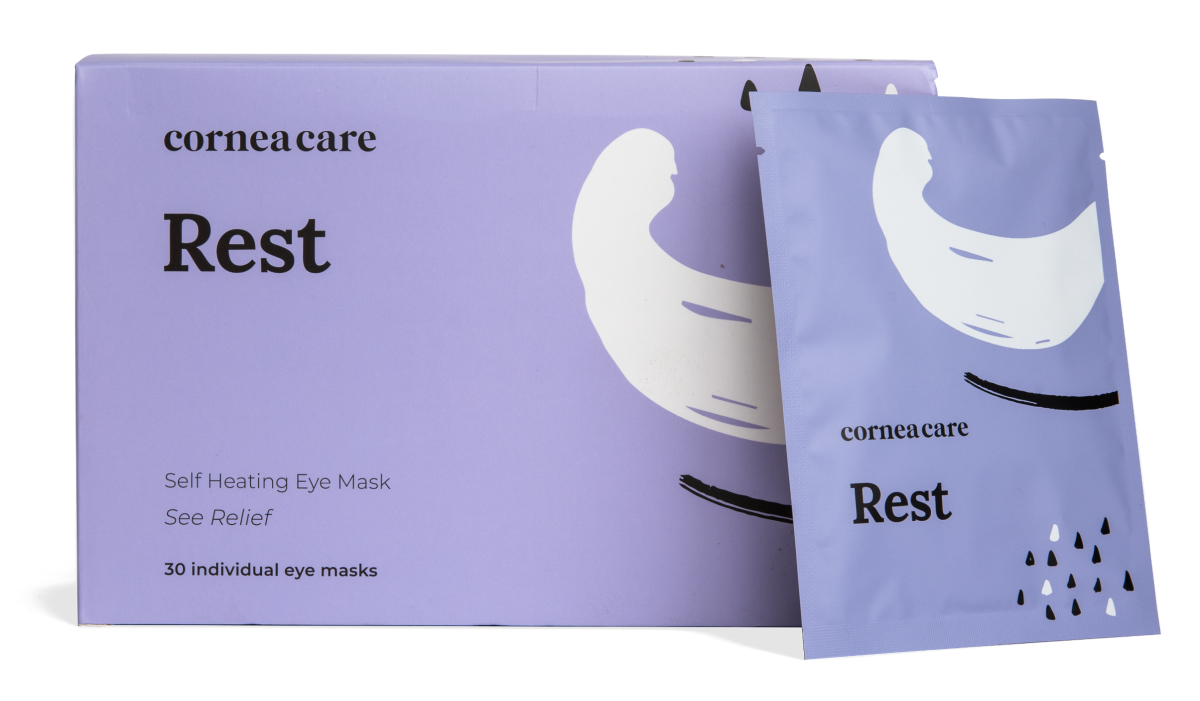
Rest
Warm Compresses
Perfect for eye dryness, fatigue, tearing, and puffiness of the eyelids. Free shipping 📦.
Try today - $30
Possible Complications from Mosquito Bites on the Eyelid
Everyone has different reactions to bug bites. For some, a mosquito bite on the eyelid may trigger an allergic reaction, leading to intense swelling of the eyelids, red eyes, and eye pain. If you expose the bite area by scratching your skin, you could develop a bacterial infection, commonly referred to as cellulitis.³
Rare cases of mosquito bites can lead to more serious, widespread symptoms all over your body. If you are aware of mosquito disease outbreaks such as West Nile in your area, you should immediately see a medical professional for diagnosis and treatment.
Pediatric Mosquito Bites and Child Symptoms
Young children may experience bug bites and stings differently than adults. Because they have “young” immune systems, a mosquito bite may trigger a low grade fever, hives or swollen lymph nodes, in addition to mild swelling of eyelids and persistent itching.²
This is because their bodies are still learning to respond effectively to foreign substances. Parents should monitor for any signs of infection, such as increased redness, warmth, or pus, which may indicate a secondary bacterial infection. Keeping the area clean and discouraging scratching can help reduce the risk of complications.
When it’s Not a Mosquito Bite: Similar Eye Problems
If you haven’t been outdoors or live in an area with a low mosquito population, similar symptoms might point to a different underlying issue. Eye conditions such as styes, chalazion, or even dry eye disease can mimic the swelling and discomfort caused by mosquito bites. Styes and chalazion typically involve red, tender bumps near the eyelid margin, close to the eyelashes, and may be accompanied by localized pain.
Dry eye disease, on the other hand, can cause general irritation, redness, and a gritty feeling in the eyes but lacks the itching typically associated with mosquito bites. Allergies are another potential cause, especially if both eyelids are affected and there’s sneezing or nasal congestion. Identifying the exact cause of your symptoms is crucial for proper treatment, so if the swelling doesn’t improve or worsens, consult an eye care professional.
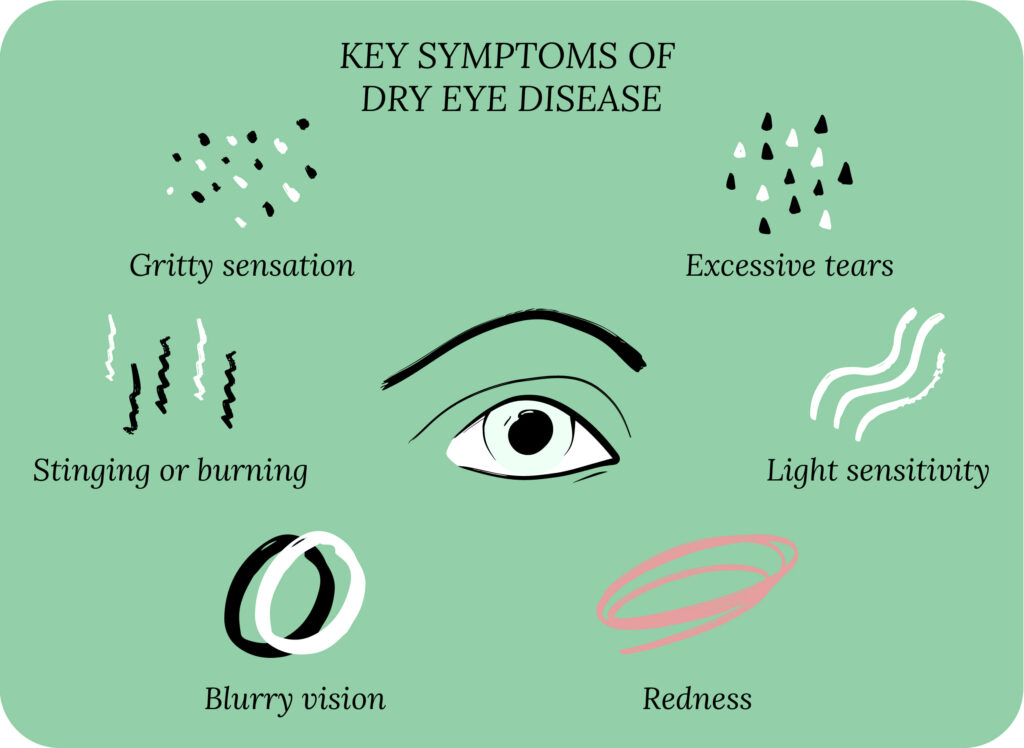
Treating a Bug Bite on your Eyelid
You can follow a few simple home remedies for most eyelid insect bites to manage symptoms. If you or your child develops more severe symptoms around your eyes or other parts of your body, seek medical attention immediately to ensure the mosquito didn’t transmit a disease.
Clean the Area
Use a clean wet washcloth with mild soap or CorneaCare’s Rise eyelid wipes to gently clean the area and prevent bacteria from entering the wound.²
Keep the area around the bug bite clean by wiping the eyelids once or twice a day until the bite irritation disappears.
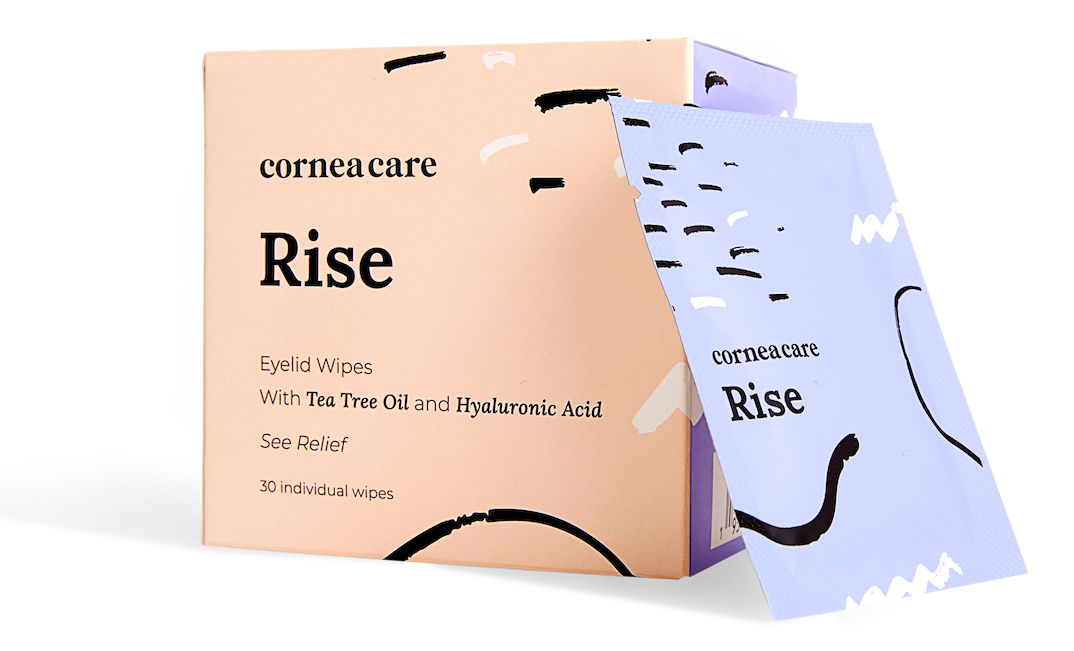
Rise
Eyelid Wipes
Perfect for eye dryness, itching, burning, and crusting/flaking of eyelashes. Free shipping 📦
Try today - $25
Use a Cold Compress
A cold wet compress on your eyelids may help reduce swelling and provide cooling relief from the itchiness.² After the initial bite, rest your eyes and use a cold compress a few times per day to help speed up recovery. You can use a cold pack from your freezer, but it may be hard to position on your eyelid.
CorneaCare’s Rescue self-cooling cold compresses are great to keep on hand for situations like this! They require no refrigeration or freezing and provide cool comfort for up to fifteen minutes. Because they are individually wrapped, they’re perfect for traveling, camping, and venturing off to enjoy outdoor activities over the summer.
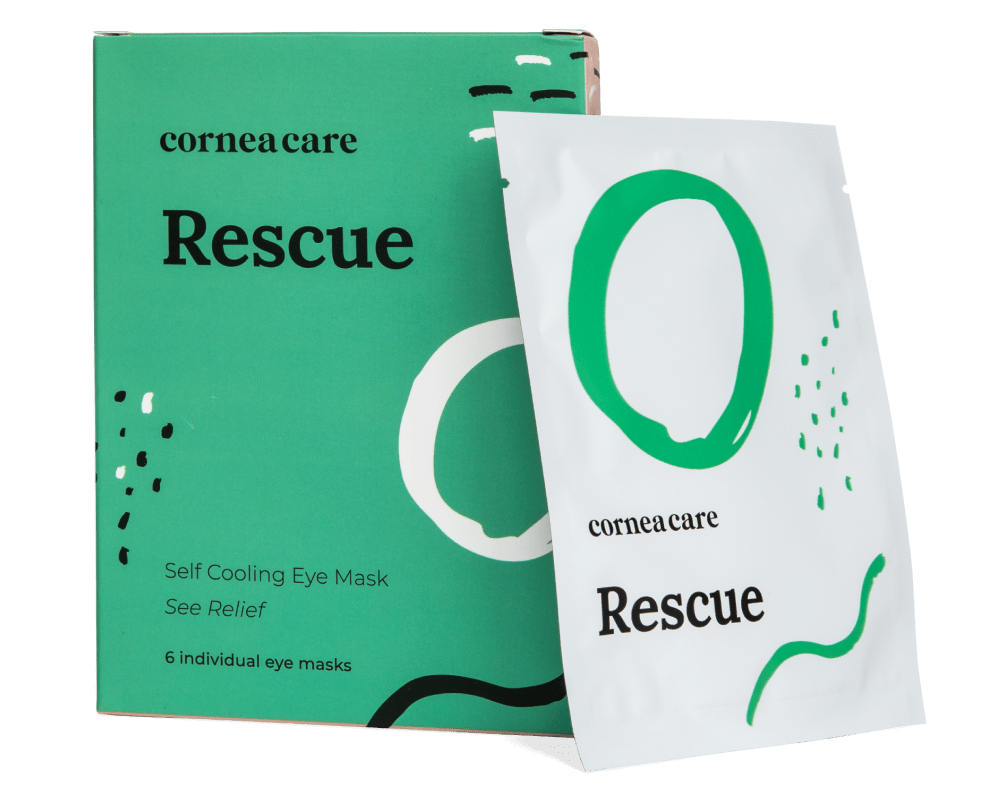
Rescue
Cold Compresses
Perfect for sudden flare-ups of eye dryness, pain, burning, and swollen/inflamed eyelids. Free shipping 📦.
Try today - $12
Try an Antihistamine
Some doctors recommend antihistamines (allergy medicine for itching like Benadryl) to relieve itching and swelling. You can take these orally or apply topically as a cream, depending on what your eye doctor recommends.²
Keep in mind that some antihistamines can cause you to experience dry eye symptoms, so you may need to supplement with an artificial tear eye drop. If the eye redness is severe, you may consider using a long-acting vasoconstrictor eye drop, such as Visine, that constricts blood vessels in your eyes to reduce redness.⁴
However, these types of eye drops, especially when used on children, can cause a rebound effect. They can cause red eyes if used for multiple days. It’s best to limit their use to only one to two days after getting the bite.⁵
How to Prevent a Mosquito Bite on Your Eyelid
Although getting bit by a mosquito is not 100% avoidable, there are some steps you can take to lessen your chances of getting those itchy mosquito bites.²
- Avoid wearing strong perfumes or fragrances outside.
- Use Environmental Protection Agency (EPA) registered insect repellents (although be careful to avoid your eye area).
- Control mosquitoes from hanging around outside by covering or removing standing water.
- Avoid using bright lights near where you are located outdoors.
- For children, ask your pediatrician how you can keep your child’s eyes safe while outside if you live in a high mosquito population.
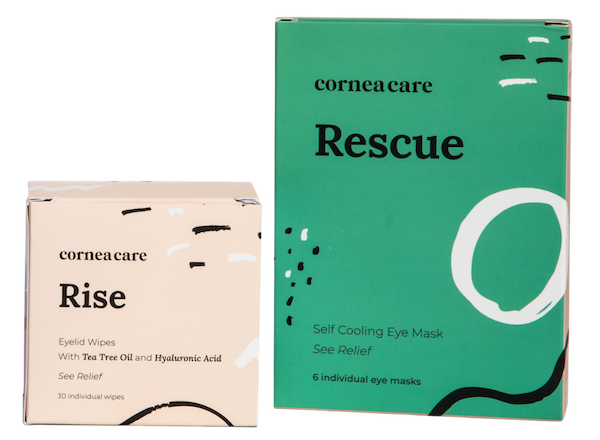
Starter
Eyelid Hygiene Plan 1
Perfect for eye dryness, burning, itching, pain, crusting/flaking of eyelashes and inflamed eyelids. Free shipping 📦.
Try today - $35
Mosquito Bite on the Eyelid FAQ
The symptoms of a mosquito bite on the eyelid can last a few days. You may have itchy eyelids for 1-2 days while swollen eyelids can last 3-4 days. In some cases, swelling may last longer. Cold compresses can help ease your symptoms and bring relief sooner.
An irritating mosquito bite can cause swelling to your eyelids that may last 3-4 days, and sometimes longer. Clean the area with eyelid wipes and use cold compresses to relieve symptoms sooner.
If you have an insect bite on your eyelid, you may initially feel pain and soreness. Other symptoms such as itchiness and red, swollen eyelids often follow. Symptoms may last 3-4 days and can be eased with eyelid wipes and cold compresses. You may also take an OTC antihistamine to reduce symptoms.
An insect bite on your eyelid can cause redness and swelling that eases after 3-4 days. Other causes of uncomfortable bumps on the eyelid are a stye or chalazion, caused by clogged oil glands near the eyelashes.
To treat a mosquito bite on your eyelid, first, clean the area with a washcloth and gentle soap or use an eyelid wipe. Rest your eyes for 10-15 minutes at a time with a cold compress over your closed eyes to reduce swelling. If needed, you can try a topical or oral antihistamine to relieve itching and swelling. If your symptoms are severe, it’s best to call your eye doctor for treatment.
Putting It All Together
Insect bites are a nuisance for most people. When it comes to the sensitive skin around your eyes, it helps to know how to find relief quickly. It’s also good to know what to look for when it comes to children and others with compromised immune systems.
Summertime is a season when the eyes are at risk for several injuries and problems. These may include insect bites, eye allergies, excessive sun exposure, sand in the eye, and even debris from fireworks.
Being aware of eye dangers can keep your eyes safe so you can enjoy your summers more!
What’s Next
Want to learn more about keeping your and your child’s eyes safe and healthy all summer? These related articles on the Eye Health & Wellness blog can help:



